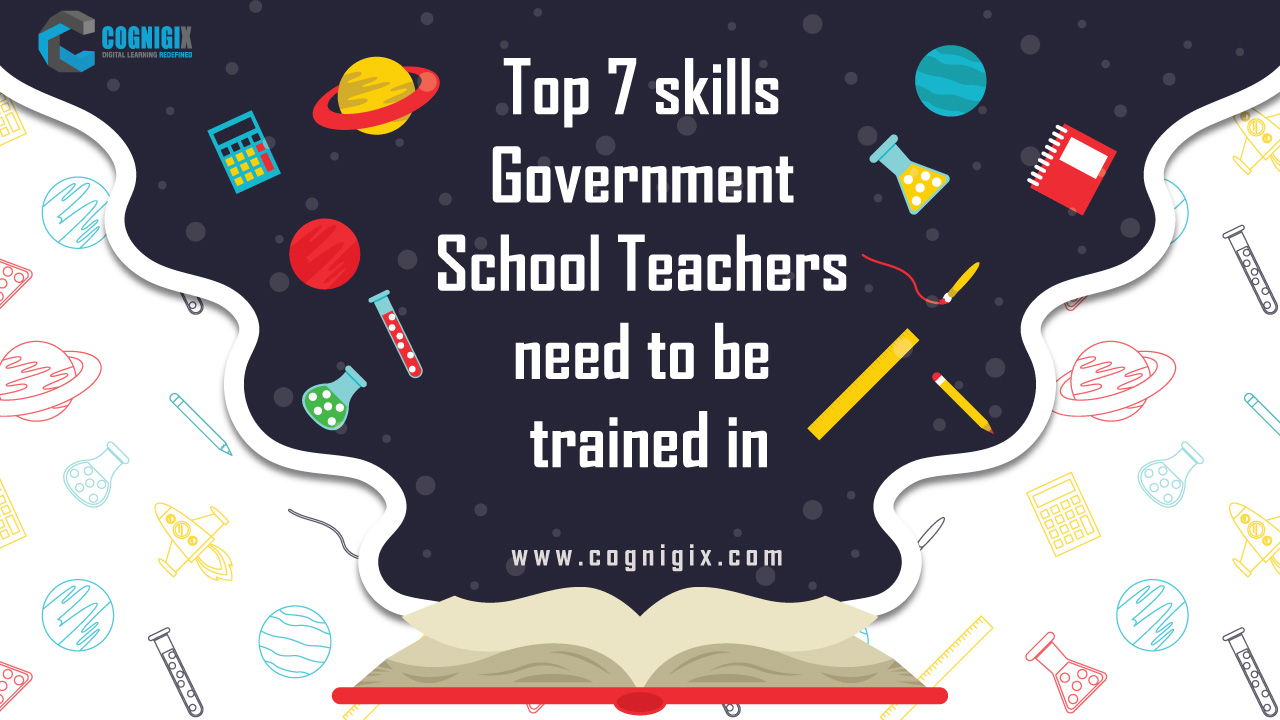The education industry is intended for aiding the growth of the present generation, tendering them as a boon for a great future of the country. The disruptions to this will hamper the national ladder of growth. For this reason, an eagles view in this context is essential. As 65 per cent of India’s population resides in rural areas. So here in this article we have researched and curated 7 skills that government school teachers lack and can be trained through digital learning to perform better and hassle-free:

The skills that government school teachers can be trained for are crafted below:
- Digitally acquainted– From junior to grown-up, from student to teacher, being digitally acquainted in today’s world has become a necessity. As digitalization has made the life of everyone easier. In education and learning industry, digital learning is treated as an important ‘learning tool’, as teaching and learning content becomes more accessible and engaging.
- Time management– Non-teaching duties like election invigilation might often keep teachers away from schools. Furthermore, teachers also have to report for duty far away from their home. Which ignites the lamp of time management as their responsibility towards the school syllabus shouldn’t be neglected.
- Adaptability– Often skilled and well-qualified teachers from rural areas look forward to urban opportunities and are not willing to accustom to the teaching environment of rural areas. But, in fact, the need for their knowledge and wisdom is stronger in rural areas. Learning to adapt to the rural teaching aids, tools and environment is a bigger task then actual teaching.
- Interpersonal sensitivity– Being a teacher the person has to simulate the skill of being ‘good with people’. As it has to be imitated by the students. Interpersonal Sensitivity (emotional and social) is the intelligence to correctly evaluate others’ abilities, state of mind, and behavioural traits from nonverbal cues.
- Mindfulness– Mindfulness-oriented invasions can build teacher’s social and emotional competence and the add essence of interesting and stress-free classroom interactions for teachers and students, both. Mindfulness application should also show the alteration the brain structure of practitioners in positive ways.
- Emotional Intelligence– ‘Emotional intelligence’ refers to the ability to identify and manage one’s own emotions, as well as the emotions of others. Teachers necessitate the ability to manage emotions, which includes both regulating own emotions if necessary and helping others to do the same.
- Stress management– Teaching can be a stressful job. Practising mindfulness can serve as a valuable antidote to the stress many educators experience in juggling the competing demands common during the school day.
Cognigix endeavours to devise a training module for government teachers that will help them gain these skills. It’s a cinch for Cognigix to digitise the training that is provided by the Government and make the content digital which is easily accessible and less time consuming, following with providing help to the participants adopt the training program.

